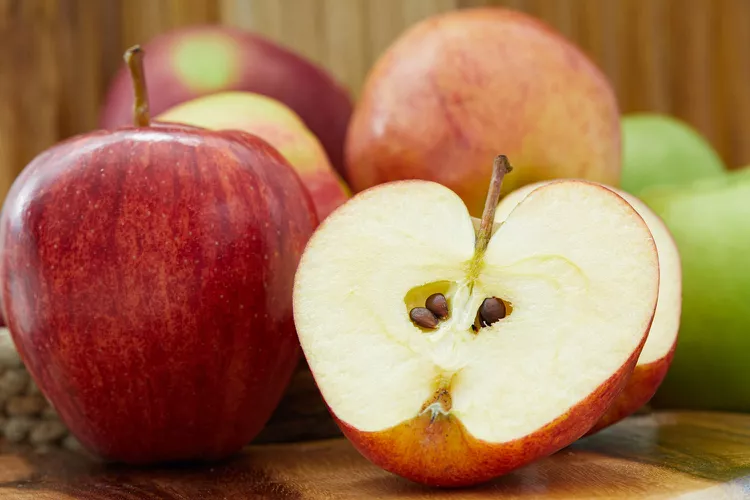Are Apple Seeds OK to Eat? Here's What Food Safety Experts Have to Say

An apple a day may keep the doctor away, but what about those pesky apple seeds?
While snacking on an apple or slicing some up for a classic apple pie, you may have wondered why apple cores, including the seeds, are typically thrown away. Apple seeds have earned a deadly reputation for containing cyanide, which is highly lethal to humans. But just how dangerous are apple seeds, and should you be worried if you consume some?
Here, we tapped three experts to tell us everything you need to know about eating apple seeds.
- Sarah Brekke, M.S., culinary specialist, Better Homes & Gardens Test Kitchen
- Stephanie Crabtree, M.S., R.D.
- Crystal Higgins, R.D.
Is It Safe to Eat Apple Seeds?
In general, our experts recommend avoiding eating apple seeds to minimize any health risks. Apple seeds contain amygdalin, a compound that converts to the highly toxic cyanide in the body.
“Apple seeds contain a compound called amygdalin that, when mixed with stomach juices and enzymes, turns into hydrogen cyanide, which in large quantities is very toxic,” Crabtree says. “For this reason, I would not recommend eating apple seeds.”
That said, if you accidentally swallow one or two apple seeds, you probably don’t need to be too concerned. .
“Eating a few apple seeds here and there is unlikely to cause harm, but consuming large quantities could be dangerous and potentially lead to symptoms of cyanide poisoning,” Higgins says. “Most people don’t need to worry as the amount of amygdalin released from a few seeds is generally too small to cause harm.”
And while apple seeds tend to get attention for containing cyanide, Crabtree points out that one study found higher levels of cyanide in raw almonds and raw flax when juiced.
Can You Eat Apple Cores?
Apple seeds should be avoided, but what about those apple cores? The core of the apple tends to be tough and fibrous, Higgins notes, and is typically tossed out.
But apple cores are edible, and they’re far healthier than people might expect, Brekke says. “We already know that a majority of the fiber, vitamins, and antioxidants in an apple are found in the skin and flesh, but most people don’t realize that apples are also packed with healthy bacteria, most of which resides in the cores and seeds of apples,” she says.
“You can absolutely eat the apple core,” Crabtree agrees. “It contains a prebiotic soluble fiber called pectin, which feeds the good bacteria in your GI tract.”
Crabtree recommends cutting the apple in quarters, fishing out the seeds, and eating the rest. “There has also been research showing beneficial probiotic bacteria in the different apple contents, with organic apples having more beneficial bacteria than conventionally grown apples,” she adds.
So, next time you’re snacking on an apple or putting together your favorite apple pie, go ahead and eat the core—but it’s probably best to skip the seeds.